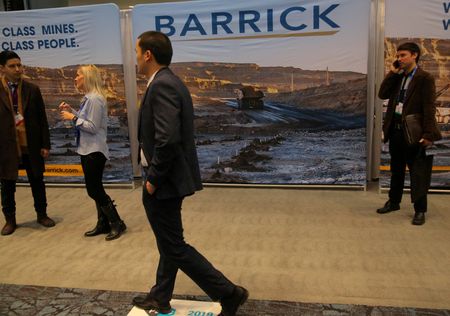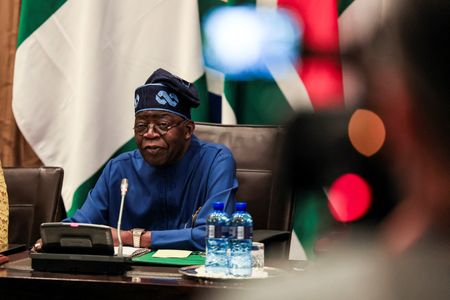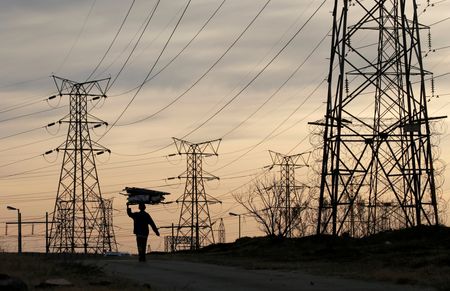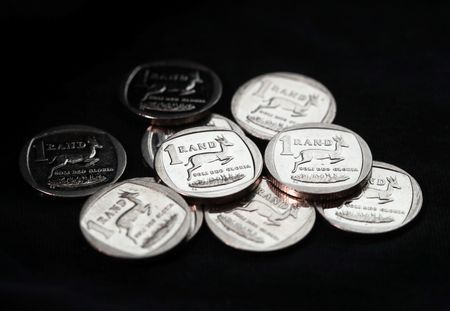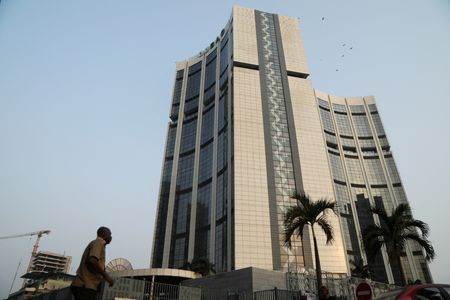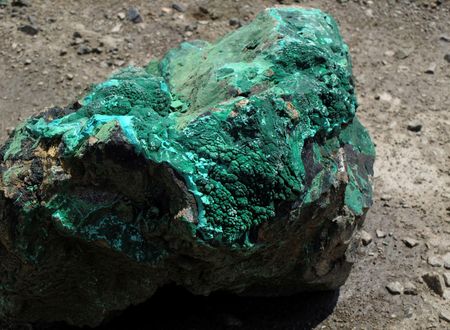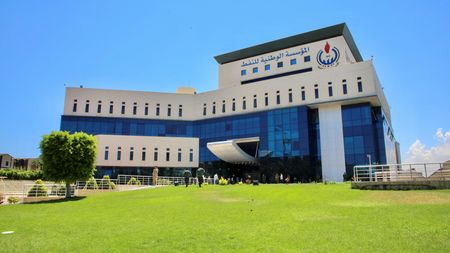By Portia Crowe, Divya Rajagopal and David Lewis
(Reuters) – Two former company executives with inside knowledge of Barrick Gold’s operations in West Africa are helping to drive Mali’s demands for a payment of around $200 million from the Canadian miner, according to people familiar with the talks.
Mamou Toure and Samba Toure, key members of the government’s negotiating team, both used to work in Mali for Randgold, a mining company that is now part of Barrick.
Mali’s military-led government, which in December seized three metric tons of gold from Barrick worth about $245 million, has given the miner until Saturday at midnight to respond to its demands.
It wants Barrick to pay 125 billion CFA francs ($199 million) in back taxes, according to a source familiar with the situation.
If a deal is finalised, Mali would return the seized gold and release four Barrick executives detained since late November, the source said.
Barrick has publicly rejected the charges against its employees, without specifying what they are. According to a court document reviewed by Reuters, they include money laundering and financing of terrorism.
Barrick did not answer questions about the status of the talks and Mali’s mines ministry did not respond to a request for comment.
The dispute has ramifications for global miners and other foreign investors who poured billions of dollars into West Africa and are now forced to play by a new set of rules as the military governments of Mali, Niger and Burkina Faso seek a bigger share of mining revenues.
“The standoff with Barrick is a snapshot of just how far military-led governments in the Sahel are willing to go to compel foreign operators to comply with new regulations that align with their pursuit of resource nationalism,” said Beverly Ochieng, senior analyst for Francophone Africa at Control Risks.
Reuters spoke to more than 20 people – including mining executives, consultants, diplomats and people with direct knowledge of the talks – to form a picture of the negotiations. The sources requested anonymity because of the sensitivity of the situation.
The two Toures are among a small group of key players on the Malian side, which also includes junta leader Assimi Goita and Minister of Finance and Economy Alousseini Sanou, according to nine people familiar with the matter.
The men, while they share a surname, are not related. Samba Toure, the older by decades, was the more senior of the two at Randgold, where he was West Africa operations director. Mamou was underground manager for the Loulo mine.
But it is Mamou who is now the more influential negotiator for Mali, due in part to his close relationship to the powerful finance minister Sanou, the sources said.
It was Mamou’s consultancy Iventus that won the contract to audit foreign mining companies in Mali, which led to a new mining code in 2023 and renegotiations of the miners’ contracts. Samba now works for him at the consultancy.
“It’s Mamou who is currently the boss,” said one person who formerly worked with them both, adding that Samba’s experience and technical knowledge was nevertheless crucial in decision-making. “The decisions come much more from Samba than from Mamou.”
In response to Reuters’ detailed questions, Mamou said that for decades gold production had not benefitted the people of Mali as it should have. Mali is Africa’s second-largest gold producer.
“It is only natural that the state ask for a rectification,” he told Reuters. “The state has made a great effort to reach an agreement, which is why all the other companies have reached an agreement with the state.”
Samba Toure did not respond to a request for comment.
ACRIMONIOUS TALKS
While other Western miners – including Canada’s B2Gold, Allied Gold and Australia’s Resolute – have struck deals with Mali in recent months, Barrick’s negotiations have dragged on acrimoniously.
The military governments in Mali, Niger and Burkina Faso are using legal disputes, arrests and nationalisations, as well as threats to deepen their ties with Russia, to assert greater control over their gold and uranium wealth.
But Ochieng of Control Risks said that did not mean Western operators were unwelcome. “Several Western mining companies have been allowed to expand operations and take on new assets provided they comply with the latest regulations and taxation demands,” she said.
After seizing power in 2020, Mali’s junta pledged to scrutinise its mining sector so the state would benefit more from gold prices running at all-time highs.
Some companies, like B2Gold, reached an agreement swiftly. Others, like Australia’s Resolute, whose CEO was detained while in Mali for talks, took longer.
B2Gold told Reuters it was proceeding with planned investments this year at its Fekola gold complex after reaching the deal. Resolute on Thursday told an investor call that it hoped its deal paved the way for better collaboration with Mali’s government as it develops the Syama mine.
Relations with Barrick, however, deteriorated last year. After authorities arrested four Malians working for Barrick in September, the company paid 50 billion CFA francs ($80 million) and they were released. But Mali, which is seeking a total of around $350 million, demanded further payments.
Mali represents 14% of Barrick’s gold output and the company generated $949 million in revenue from its operations there in the first nine months last year.
In early November, Bristow told Reuters the company had offered Mali 55% of the economic benefits from its Loulo-Gounkoto mine complex – similar to an agreement the miner struck with Tanzania about five years ago.
But when Barrick did not pay a second tranche, Mali accused the company of breaking its commitments and demanded the remaining sum be paid at once rather than in tranches. It began blocking Barrick’s exports in early November.
Discounting VAT credits, Mali says Barrick has 125 billion CFA francs left to pay.
When no payment came, four employees were detained again in late November and Mali issued an arrest warrant for Barrick CEO Mark Bristow on Dec. 5.
Nevertheless, contacts continued behind the scenes. One source who spoke to Barrick senior management told Reuters on Dec. 6 that Barrick was close to paying a second tranche of 50 billion CFA. But no payment was made and the conversations stalled. Formal talks resumed on Tuesday.
Freddie Brooks, metals & mining analyst at BMI, a FitchSolutions company, said that under Bristow’s leadership Barrick had probably the highest tolerance for operational risk of any major miner.
“If they can’t negotiate a compromise with Mali’s military junta, it won’t be for lack of trying,” he said.
CLASHES WITH BRISTOW
Samba Toure quit Randgold around nine years ago after a quarrel in an online meeting with Bristow, who was CEO of that company at the time, according to someone who has worked with both Toures.
The rift deepened after Samba handed in his resignation and was not allowed to dispose of his vested Randgold share options, domiciled in London.
Mamou Toure had already left Randgold in 2015, following a dispute with Bristow over the use of foreign contractors, one of the sources said.
Barrick did not respond to a request for comment on the circumstances of the Toures’ departures.
When the government announced its plans to audit the mines, Mamou won the consultancy contract with his firm Iventus Mining. It was Samba Toure who directed the audits, two sources said.
After Mali created a state-owned mining company, SOREM, in 2022, Samba was named chairman of the board, with Mamou appointed as a director.
The influence of the Toures is not unchallenged, however. Last summer, junta leader Goita grew frustrated with the negotiations and brought in the director of state security, Modibo Kone, one of the five colonels-turned-generals who lead the junta, one source said. A second source confirmed Kone’s involvement in the talks.
On at least one occasion, the finance minister has also taken over negotiations and instructed Mamou to stand down after he went too far in his demands, according to one source familiar with the talks.
Five sources said that the mines minister, a technocrat with no ties to the military, has been sidelined. However, Mamou denied that, noting the ministry has two representatives on the negotiating commission. The commission takes its orders from the mines ministry as well as the finance ministry, he said.
Mali’s finance ministry and presidency did not respond to requests for comment. It was not possible to reach the state security service.
SPECIAL FORCES RAID
With exports banned and Barrick’s mines producing up to half a ton of gold weekly, stockpiles were rising in its secure “gold room” at the Loulo-Gounkoto mine complex.
As of Dec. 27, Barrick held just over 3 tons in its vaults, according to a Jan. 2 court order seen by Reuters, which authorised its seizure.
At mid-morning on Jan. 11, a helicopter landed at the mine complex’s landing strip unannounced. Four special forces soldiers, a customs agent, two officers of the state mining directorate, and other plainclothes officials disembarked and presented paperwork to Barrick staff authorising them to seize the gold, one of the sources said.
“They shipped a first quantity and came back in the evening for a second shipment,” the source said, adding that it was all over by 7:00 pm.
For now, the gold seized from Barrick’s mines is sitting in the vaults of the state-owned Banque Malienne de Solidarite in Bamako. The bank declined to comment.
Barrick, which confirmed the seizure of the gold, says it has suspended operations at Loulo-Gounkoto.
The Jan. 2 order said the seizure was a preventative measure as part of the charges of money laundering and other unspecified financial crimes that have been levelled at Bristow and other Barrick employees under Mali’s laws.
Barrick is resisting the government’s demand to migrate to the new 2023 mining code largely because of increased taxes under the code, two sources said.
Pending next year is the renewal of Barrick’s mining permit. The government has signalled it could refuse it.
One source, who has consulted for the Malian government, said the government was seeking leverage for that negotiation, while the company wanted to clinch a long-term renewal under favourable terms.
“I think they don’t trust each other, but no one has an interest in a break-up,” the person said.
Some investors, however, are anticipating a tough road ahead for Barrick in Mali, including the possibility the company could lose its assets.
“The market has already factored in all the risks on Barrick shares, and the possibility that not much of production is going to come from Mali anytime soon,” said Martin Pradier, materials analyst at Toronto-based Veritas Investment Research Corporation, which covers Barrick.
($1 = 626.7500 CFA francs)
(Additional reporting by Tiemoko Diallo and Fadimata Kontao in Bamako; Writing by David Lewis and Portia Crowe; Editing by Silvia Aloisi, Veronica Brown and Daniel Flynn)

